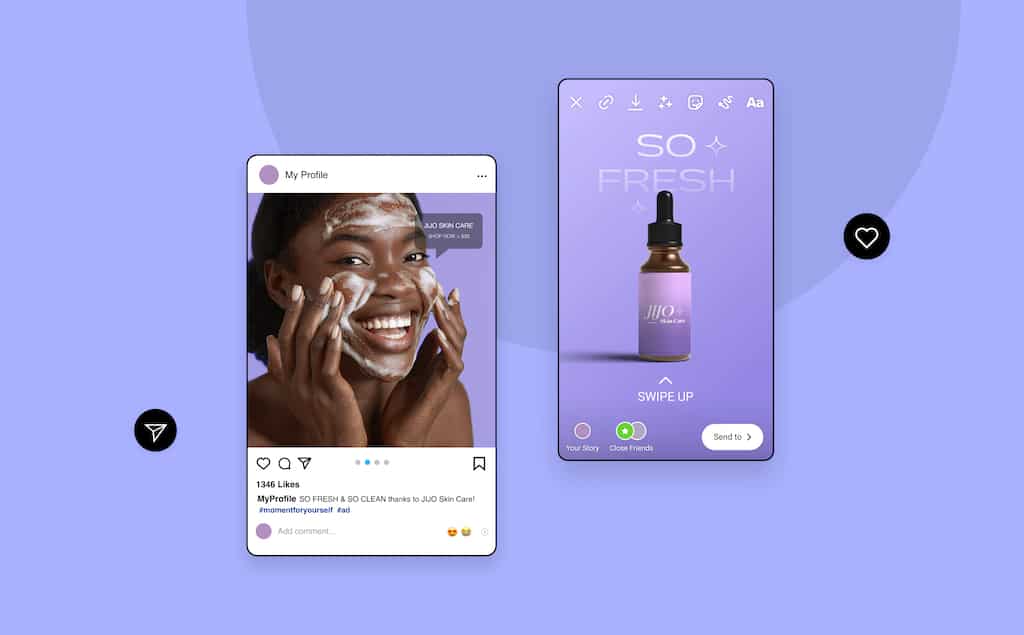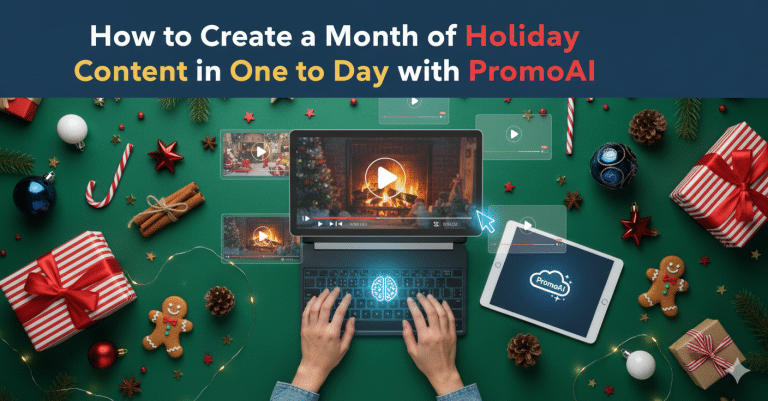
The Complete Guide to Instagram Influencer Marketing in 2025
Have you ever scrolled through Instagram and discovered an amazing product through someone whose style you admire? You click through to learn more, maybe even make a purchase—all because their recommendation felt genuine and trustworthy.
That’s the power of influencer marketing in action, and it’s precisely why businesses of all sizes are investing heavily in this strategy to increase brand awareness, reach, and sales.
The numbers speak for themselves: the influencer marketing industry is expected to reach $32.55 billion by 2025, with an impressive compound annual growth rate of 33.11%. Success stories abound—from H&M reaching a whopping 12 million people through just four sponsored posts to Pura Vida seeing a 300% increase in sales after partnering with micro-influencers.
What is an Instagram Influencer?
Instagram influencers are users, bloggers, or content creators with an established and engaged audience who look up to them and trust their opinions on products and services.
Put simply, an influencer is someone who has “influence” over their audience—their recommendations hold weight for their followers and can affect their purchase decisions. In fact, 49% of consumers depend on influencers’ recommendations to swipe their cards.
Influencer marketing allows you to leverage an influencer’s relationship and reputation to advance your marketing efforts and see better results. Influencers receive a payout or other forms of compensation for endorsing a brand’s product. Brands get benefits like reaching a vast audience and getting their products recommended by a trusted source.
Let’s further understand influencer marketing’s definition and why it’s huge right now.
With Instagram’s 2 billion monthly active users and its reputation as the top visual platform for authentic content, it remains the preferred choice for 57% of brands running influencer campaigns. But the landscape has evolved significantly—gone are the days when follower count was king. In 2025, authenticity, engagement, and strategic partnerships are what drive real results.
If you’re ready to harness the power of Instagram influencer marketing, this comprehensive guide will take you through everything you need to know—from developing a winning strategy to finding the perfect influencers for your brand.

What is Instagram Influencer Marketing in 2025?
Instagram influencers are content creators with established, engaged audiences who trust their opinions and recommendations. In 2025, an influencer’s true power lies not in their follower count, but in their ability to create authentic connections and drive meaningful engagement.
Modern influencer marketing is about leveraging these genuine relationships to advance your marketing efforts through trusted endorsements. When done right, it feels less like advertising and more like getting a recommendation from a friend. In fact, 69% of consumers trust influencer recommendations.
The Evolution of Influence
The definition of influence itself is changing in 2025:
- Authenticity Over Polish: Users and algorithms favor genuine, unfiltered content over highly-produced material
- Niche Communities: Micro and nano-influencers with smaller, dedicated audiences often outperform mega-influencers
- Long-term Partnerships: Brands are moving away from one-off campaigns toward ongoing ambassadorships
- AI Integration: 63% of marketers plan to use AI in their influencer campaigns for better identification and fraud detection
Why Instagram Influencer Marketing Works in 2025
The effectiveness of influencer marketing stems from fundamental human psychology—we trust people more than brands. Here’s why Instagram remains the powerhouse platform for influencer collaborations:
Trust and Authenticity
Influencers share personal aspects of their lives beyond promotional content, building genuine relationships with their followers. This authenticity translates into trust—and trust drives purchasing decisions. In fact, 69% of consumers trust influencer recommendations.
Unmatched ROI
For every $1 spent on influencer marketing, businesses gain $6.50 on average. This exceptional return stems from the targeted nature of influencer audiences and the authentic way products are presented.

Platform Advantages
Instagram’s visual nature, diverse content formats (Posts, Reels, Stories), and sophisticated algorithm make it ideal for influencer partnerships. The platform’s algorithm particularly favors Reels, which generate 2.08% engagement rates—the highest among all content types.
Key Benefits of Instagram Influencer Marketing:
Build Trust and Credibility: Partner with established voices in your industry to position your brand as an authority
Expand Your Reach: Tap into highly-engaged audiences that already trust the influencer’s recommendations
Generate Authentic Content: Collaborate with creators who understand how to produce engaging, platform-native content
Drive Conversions: Leverage the personal connection influencers have with their audience to increase sales
Boost Brand Awareness: Reach new audiences through trusted intermediaries in your niche

The New Influencer Hierarchy: Size Matters Less Than Engagement
In 2025, the influencer landscape has shifted dramatically. While follower counts still matter, engagement rates, authenticity, and niche relevance have become the primary success indicators.

Nano-Influencers (1,000-10,000 followers)
Nano-influencers represent 76.86% of Instagram influencer accounts and are experiencing unprecedented growth. Their superpower lies in their relatability and authentic connections.
Key Advantages:
- Highest engagement rates (averaging 5-10%)
- Most affordable option for brands
- Hyper-targeted, niche audiences
- Authentic, genuine endorsements
- Perfect for local or specialized campaigns
Best For: Brands with limited budgets seeking high ROI, local businesses, niche products

Micro-Influencers (10,000-100,000 followers)
Micro-influencers have become the sweet spot for many brands, offering the perfect balance of reach and engagement. 75.9% of Instagram influencer partnerships in 2024 were with nano and micro-influencers combined.
Key Advantages:
- Strong engagement rates (3-7%)
- Niche expertise and authority
- Cost-effective compared to larger influencers
- Maintain personal connections with followers
- Higher conversion rates
Best For: Product launches, building brand awareness in specific niches, driving direct sales

Mid-Tier Influencers (100,000-500,000 followers)
Mid-tier influencers offer broader reach while maintaining decent engagement rates, making them ideal for scaling campaigns.
Key Advantages:
- Balance of reach and engagement
- Professional content creation experience
- Established brand partnership history
- Cross-platform presence
Best For: Major product launches, building brand authority, reaching broader audiences

Macro-Influencers (500,000-1 million followers)
Macro-influencers provide significant reach and are often established content creators with professional-grade content.
Key Advantages:
- Massive reach potential
- High-quality content production
- Cross-platform influence
- Brand partnership experience
Best For: Large-scale campaigns, brand awareness drives, product launches with significant budgets

Mega-Influencers (1+ million followers)
Celebrity-level influencers with massive reach, though their engagement rates tend to be lower due to their broad audiences.
Key Advantages:
- Enormous reach potential
- Mainstream media attention
- Global audience access
- High brand credibility association
Best For: Major brand campaigns, global product launches, building mainstream awareness

How to Find the Right Instagram Influencers for Your Brand
Finding the perfect influencer partners requires strategic thinking beyond follower counts. Here’s your step-by-step process:
1. Define Your Campaign Goals and Budget
Before reaching out to anyone, establish clear objectives:

- Brand Awareness: Increase visibility in your target market
- Engagement: Drive interactions and community building
- Sales: Generate direct conversions and revenue
- Content Creation: Develop authentic user-generated content
- Brand Authority: Position yourself as an industry leader
Budget Considerations for 2025:
- Nano-influencers: $10-100 per post
- Micro-influencers: $100-500 per post
- Mid-tier influencers: $500-5,000 per post
- Macro-influencers: $5,000-10,000 per post
- Mega-influencers: $10,000+ per post
2. Identify Your Target Audience
Understanding exactly who you want to reach is crucial for influencer selection:
- Demographics: Age, gender, location, income level
- Psychographics: Interests, values, lifestyle preferences
- Behavior Patterns: Shopping habits, social media usage, content preferences
- Platform Usage: How they engage with Instagram content
3. Determine Your Niche and Campaign Focus
Match your campaign to relevant niches:
- Broad Categories: Fashion, fitness, beauty, tech, food, travel
- Sub-niches: Sustainable fashion, plant-based fitness, clean beauty, mobile gaming
- Micro-niches: Vintage fashion, yoga for seniors, Korean skincare, indie gaming
4. Research and Vet Potential Influencers
Where to Find Influencers:
- Organic Discovery: Monitor your branded hashtags, mentions, and tagged posts
- Influencer Platforms: Grin, Upfluence, AspireIQ, Klear, HypeAuditor
- Social Listening: Track conversations around your brand and competitors
- Google Searches: “Top [your industry] influencers” searches
- Competitor Analysis: See who your competitors are working with
- Influencer Agencies: Izea and other specialized agencies

Red Flags to Avoid:
- Fake Followers: 9.5% of Instagram accounts are bots—use tools like HypeAuditor to detect fake engagement
- Low Engagement: Engagement rates below 1% for accounts over 100K followers
- Inconsistent Content: Lack of clear niche or constantly changing focus
- Brand Overload: Promoting too many competing brands
- Poor Comment Quality: Generic, emoji-only, or spam-like comments
5. Evaluate Influencer Authenticity and Fit
Key Evaluation Criteria:
Engagement Quality:
- Look for meaningful comments and genuine interactions
- Check if the influencer responds to their community
- Analyze comment-to-like ratios (should be around 2-4%)
Content Quality:
- Assess photography, writing, and overall content production
- Review consistency in posting and brand aesthetic
- Evaluate storytelling ability and creativity
Audience Alignment:
- Request audience demographics or insights
- Ensure their followers match your target customer profile
- Check geographic distribution if location matters
Brand Values Alignment:
- Review their previous partnerships and endorsements
- Ensure their personal brand aligns with your company values
- Look for authentic interest in your product category
2025 Instagram Influencer Campaign Types
The landscape of influencer partnerships has evolved. Here are the most effective campaign types for 2025:
1. Sponsored Content Partnerships
The most common collaboration type, involving influencers creating branded content for their feeds.

Best Practices for 2025:
- Focus on Reels over static posts (2.08% vs 1.17% engagement rates)
- Keep video content under 30 seconds for optimal completion rates
- Encourage authentic storytelling over hard selling
- Ensure proper FTC disclosure with #ad or #sponsored tags
Content Types:
- Product demonstrations and unboxings
- Tutorial and how-to content
- Behind-the-scenes brand stories
- Lifestyle integration posts
2. Long-term Brand Ambassadorships
35.3% of brands are now experimenting with always-on approaches to build stronger, ongoing audience connections.
Benefits:
- 99% of teams using always-on approaches rate their programs as effective
- Deeper brand-influencer relationships
- More authentic endorsements over time
- Better ROI through extended partnerships
Best Practices:
- Start with successful short-term collaborations
- Provide ambassadors with exclusive access and benefits
- Create co-branded content series
- Give ambassadors creative freedom while maintaining brand guidelines
3. Product Collaboration and Co-Creation
Take partnerships beyond promotion by involving influencers in product development.
Examples:
- Limited edition product lines
- Influencer-designed collections
- Beta testing and feedback programs
- Co-branded launches
Benefits:
- Deeper influencer investment in success
- Authentic product endorsement
- Unique content opportunities
- Shared marketing efforts
4. Event Partnerships and Experiences
In 2025, brands are increasingly investing in creators capable of hosting in-real-life events and sparking cultural conversations.
Types:
- Brand trip documentation
- Product launch events
- Workshop and tutorial sessions
- Behind-the-scenes experiences
5. User-Generated Content Campaigns
Leverage influencer creativity for ongoing content needs.
Strategies:
- Branded hashtag challenges
- Contest and giveaway promotions
- Product review campaigns
- Community-driven content series
Creating Effective Influencer Partnerships
Success in influencer marketing comes from collaboration, not control. Here’s how to structure winning partnerships:
1. Outreach Best Practices
Your first message can make or break a potential partnership. Here’s how to reach out effectively:
Outreach Template Structure:

Key Principles:
- Personalize every message
- Reference specific content you genuinely enjoyed
- Keep initial outreach brief and friendly
- Focus on fit rather than follower count
2. Campaign Structure and Guidelines
Provide clear direction while allowing creative freedom:
Essential Elements:
- Campaign objectives and key messages
- Content requirements and deadlines
- Brand guidelines and visual standards
- FTC disclosure requirements
- Usage rights and content ownership
- Performance expectations and metrics
Give Creative Freedom: Remember: you know your product best, but they know their audience best. The most successful campaigns happen when both parties collaborate rather than when brands micromanage every detail.
3. Content Optimization for 2025
Prioritize Video Content:
- Reels generate the highest engagement rates
- Keep videos under 60 seconds for optimal completion
- Focus on mobile-first, vertical content
- Use trending audio and music strategically
Leverage Multiple Formats:
- Instagram Posts for evergreen content
- Stories for behind-the-scenes and timely content
- Reels for maximum reach and discovery
- IGTV for longer-form educational content
4. Performance Tracking and ROI Measurement
Track meaningful metrics that align with your campaign goals:
Engagement Metrics:
- Likes, comments, shares, saves
- Engagement rate calculations
- Story completion rates
- Click-through rates
Awareness Metrics:
- Reach and impressions
- Brand mention tracking
- Hashtag performance
- Follower growth
Conversion Metrics:
- Website traffic from influencer content
- Promo code usage
- Direct sales attribution
- Email signups and lead generation
Calculate ROI:

For every $1 spent on influencer marketing, businesses typically see $6.50 in return.
2025 Trends Shaping Instagram Influencer Marketing
1. AI Integration and Automation
63% of marketers plan to use AI in their influencer campaigns:
- Influencer Discovery: AI-powered platforms for better matching
- Content Optimization: Predictive analytics for content performance
- Fraud Detection: Advanced tools to identify fake followers and engagement
- Campaign Management: Automated reporting and performance tracking
2. Authenticity Over Production Value
- Raw, behind-the-scenes content outperforms polished productions
- Unfiltered, genuine moments drive higher engagement
- User-generated content feels more trustworthy than brand-created assets
- Stories and Reels with casual, authentic feel perform better
3. Niche Communities and Micro-Targeting
- Brands are focusing on smaller, highly-engaged communities
- Sub-niche influencers provide better ROI than broad-appeal creators
- Cultural relevance and local partnerships drive better results
- Community-building takes priority over reach metrics
4. Long-term Relationship Building
- Moving away from transactional, one-off campaigns
- Ambassador programs provide consistent brand advocacy
- Deeper partnerships yield more authentic endorsements
- Always-on approaches show 99% effectiveness rates
5. Cross-Platform Integration
- Influencers bridge search and social platforms
- SEO-optimized video content for better discoverability
- Multi-platform campaigns for maximum reach
- Content repurposing across different channels
Common Mistakes to Avoid in 2025
1. Focusing Only on Follower Count
The Problem: Large followings don’t guarantee engagement or conversions The Solution: Prioritize engagement rates, audience quality, and brand alignment
2. Micromanaging Content Creation
The Problem: Over-controlling content stifles authenticity The Solution: Provide guidelines but allow creative freedom
3. Ignoring FTC Compliance
The Problem: Failing to properly disclose partnerships can result in legal issues The Solution: Ensure all sponsored content includes clear #ad or #sponsored tags
4. Not Tracking the Right Metrics
The Problem: Vanity metrics don’t translate to business value The Solution: Focus on metrics that align with your campaign objectives
5. One-and-Done Mentality
The Problem: Single campaigns don’t build lasting brand associations The Solution: Invest in long-term relationships with key influencers
Tools and Platforms for Instagram Influencer Marketing
Influencer Discovery Platforms
- Grin: Comprehensive influencer management platform
- Upfluence: AI-powered influencer discovery and campaign management
- AspireIQ: Focus on long-term creator relationships
- Klear: Advanced analytics and influencer insights
- HypeAuditor: Fraud detection and audience quality analysis
Content Creation and Management
- Later: Social media scheduling and influencer collaboration tools
- Promo.com’s Online Video Maker: Create professional video content for campaigns
- Canva: Design templates and brand kit management
- Restream: Live streaming and video content tools
Analytics and Tracking
- Google Analytics: Track website traffic from influencer campaigns
- UTM Parameters: Detailed campaign attribution tracking
- Instagram Insights: Native platform analytics
- Sprout Social: Comprehensive social media analytics
The Future of Instagram Influencer Marketing
As we look toward the future, several trends will continue shaping the industry:
Technology Integration
- AI Content Creation: Virtual influencers and AI-generated content
- Augmented Reality: Interactive product experiences
- Blockchain Verification: Transparent authenticity verification
- Advanced Analytics: Predictive performance modeling
Regulatory Changes
- Stricter Disclosure Requirements: Enhanced transparency mandates
- Platform Responsibility: Increased oversight of sponsored content
- Data Privacy: Better protection of audience information
- Content Verification: Systems to combat misinformation
Evolving Consumer Expectations
- Transparency Demands: Audiences expect clear sponsor disclosures
- Authenticity Requirements: Genuine recommendations over hard sells
- Value-First Content: Educational and entertaining content prioritized
- Community Engagement: Two-way conversations rather than broadcasts
Conclusion: Your Instagram Influencer Marketing Strategy for 2025
Instagram influencer marketing in 2025 is about building authentic relationships, creating genuine value, and leveraging technology to enhance—not replace—human connections. The brands that succeed will be those that understand that influence isn’t about follower counts; it’s about trust, engagement, and authentic storytelling.
Key Takeaways:
- Prioritize Authenticity: Partner with influencers who genuinely align with your brand values
- Focus on Engagement: High engagement rates matter more than massive followings
- Build Long-term Relationships: Ambassador programs outperform one-off campaigns
- Embrace Video Content: Reels drive the highest engagement and reach
- Measure What Matters: Track metrics that align with your business objectives
- Stay Compliant: Ensure proper FTC disclosure and transparency
- Leverage Technology: Use AI and analytics to enhance your strategy

The influencer marketing industry shows no signs of slowing down, with an estimated $32.55 billion market size in 2025. By implementing the strategies outlined in this guide, you’ll be well-positioned to harness the power of Instagram influencer marketing and drive meaningful results for your brand.
Remember: successful influencer marketing isn’t about finding the loudest voice in the room—it’s about finding the most relatable one. Start building those authentic partnerships today, and watch your brand grow through the power of genuine influence.
Ready to create compelling video content for your influencer partnerships? Promo.com’s online video maker makes it easy to produce professional-quality videos that complement your influencer campaigns. Whether you’re creating brand guidelines, campaign briefs, or supplementary content, our platform helps you maintain consistency and quality across all your influencer marketing efforts.



